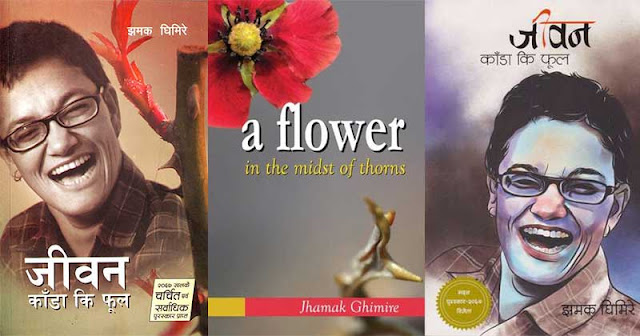Dr. HARKA GURUNG: Life dedicated to mountain tourism and conservation
 |
| Photo credit: Harka Gurung Foundation, Pokhara, Nepal |
Dr. HARKA GURUNG
By LBTHAPA
Dr. Harka Gurung, a proud name of the country, was a committed nature conservationist. He was considered a leading ecologist and geographer of note. He was born in Bhulbhule, Lamjung, on January 5, 1939. His enormous service to the nation in different capacities has duly put him on the highest pedestal. Dr. Gurung's vast erudition in geography and environment is unsurpassable. The magnitude of the work he undertook during his lifetime will remain in the memory of millions of Nepalese. Dr. Gurung, a scholar of multidimensional facets, remained devoted to the service of nature conservation until he breathed his last.
He received his school and college education in Kathmandu and Patna University, India. His thirst for knowledge took him as far as the U.K., where he studied geography and finally earned a doctorate from Edinburgh University, Scotland, in 1965. He could have had a better job opportunity in the U.K., but his love for the motherland drove him back to Nepal. In Nepal, Dr. Gurung joined Trichandra College in 1967 and began teaching geography. Many former students of Dr. Gurung still remember him as a teacher of immense wisdom and vast scholarship.
He played a key role in the socio-economic development of rural Nepal. He was the first scholar to advise separating the country into five development regions so that balanced development in all parts of the country could be possible.
His extensive knowledge of Nepalese geography, history, culture, and society has largely helped the country form the right policy that could augment social, geographical, cultural, and nature conservation activities in the country. His pioneering and innovative ideas stirred the country towards all-round development and conservation of its natural treasures. Dr. Gurung, a man of academic excellence, has done several outstanding research projects in the fields of tourism, population, mountaineering, and environment. He has also published dozens of books on regional planning, geography, demography, cartography, and social science.
Dr. Harka Gurung was a member ofthe New ERA. This is a noted research and consulting firm. He was also a research fellow of the Demonstrator, University of Edinburgh, the School of Oriental and African Studies, University of London, and a visiting fellow of the Population Institute, East West Centre, Honolulu.
Dr. Gurung was vice chairman of the National Planning Commission from 1968–75, Minister of State for Education from 1975–78, Industry and Commerce, Tourism, Public Works, and Transport. He was the Director of the Asia Pacific Development Centre, an inter-governmental organization based in Kuala Lumpur, Malaysia. In brief, Dr. Gurung is regarded as Nepal’s most prominent expert on the Himalayas.
Dr. Harka Gurung's love for Pokhara was obvious. He was always very worried about Pokhara's development. This was why he always accepted any invitation to attend a program in Pokhara. He was the first to advise a direct flight from major Indian cities to Pokhara. Dr. Harka Gurung had also suggested constructing an international airport in Pokhara. In various programs, Dr. Harka Gurung advised tourism entrepreneurs to exploit cultural tourism in the Western Development Region to promote cultural tourism in the region.
Long ago, Dr. Gurung advised opening Mt. Fishtail for mountaineers. He thought climbing Mt. Fishtail would help improve the financial status of the people living around the peak. He dismissed the idea of Mt. Fishtail being sacred and holding any religious importance to the Gurung community. He made it clear that Mt. Annapurna does hold religious significance for the Gurung community, not Mt.Fishtail.
However, he strictly opposed the mad rush of rapid construction of concrete houses in the Baidam area, which posed a grave threat to the existence of Fewa Lake. He advised not to spoil the natural ambiance of Begnas and Rupa lakes by constructing a concrete mess. He was in favor of promoting handicraft items in Pokhara so that it would help poor people find a definite source of livelihood.
 |
| LB Thapa is the publisher and editor of The Hemingway Post, a literary magazine. Photo: Read 2B Happy. |











.png)
Comments
Post a Comment